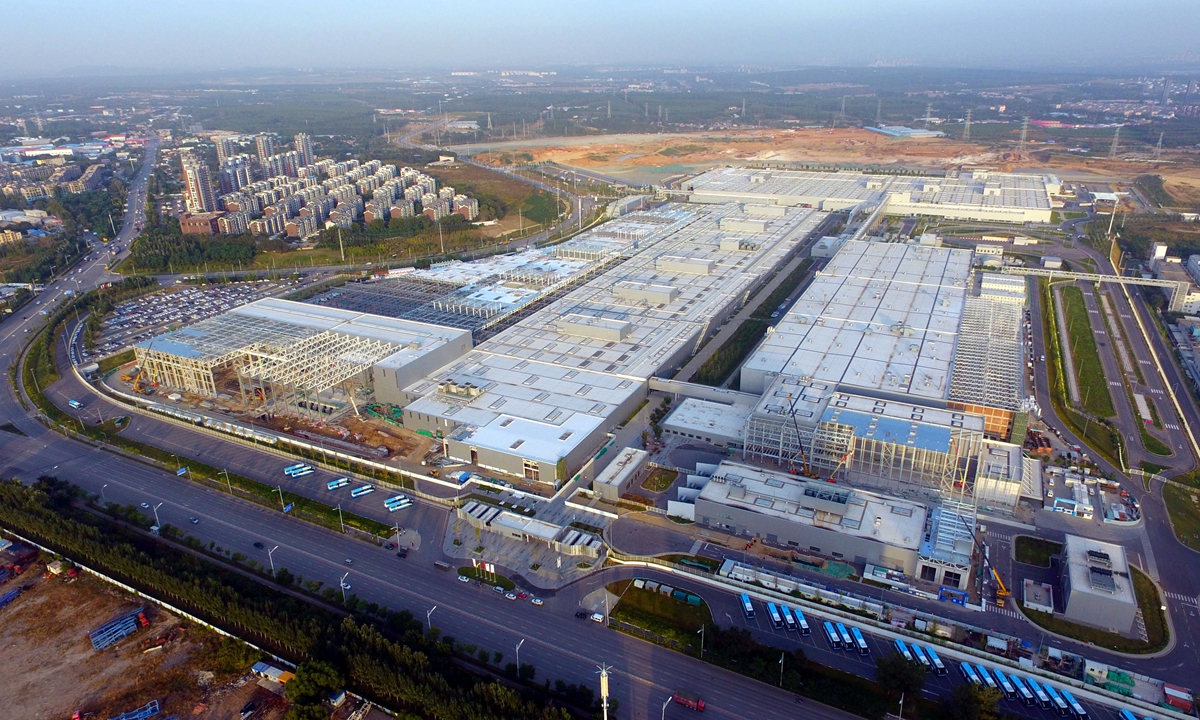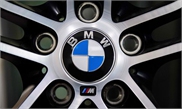
BMW Brilliance Automotive's plant in Shenyang, Northeast China's Liaoning Province File photo: VCG
German carmaker BMW AG has received a business license from Chinese regulators to raise its stake in its Chinese joint venture (JV) with Brilliance China Automotive Holdings to 75 percent from 50 percent, the global automaker said in a statement over the weekend.
The move will make BMW Brilliance Automotive the first JV producer of internal combustion vehicles with foreign ownership exceeding 50 percent in China after Chinese authorities scrapped restrictions on foreign investment in the sector starting from the beginning of this year.
Brilliance China is expected to receive nearly 28 billion yuan ($4.41 billion) in cash from BMW by February 22 in accordance with the equity transfer agreement, the Chinese automaker said in a filing to the Hong Kong Stock Exchange.
As of Friday, the extension of the JV contract, which will last till 2040, also took effect.
In a separate statement, BMW said that the BMW Brilliance plant in Dadong district in Shenyang, capital of Northeast China's Liaoning Province, is undergoing a comprehensive expansion, and a completely new plant is being built in the city's Tiexi district.
BMW will use the additional capacity to make models for the Chinese market, the company said, noting that the equity transfer is a result of China's loosening of restrictions on foreign investment in the automotive industry.
In April 2018, the Chinese government issued a timetable for the opening-up of the domestic automotive sector, removing foreign ownership caps for manufacturers of new-energy vehicles in 2018, for makers of commercial vehicles in 2020, and for all automakers in 2022.
Following the move, BMW announced in early October 2018 that it would take control of its main JV in China.
Other foreign automakers have also set up wholly owned factories or increased holdings in their Chinese JVs.
For instance, Tesla is the first wholly foreign-owned manufacturer of electric vehicles in China. In 2020, Volkswagen took majority control of its electric car JV, known as JAC Volkswagen.
"To a certain extent, BMW has set a precedent for JV automakers to adjust their equity holdings, which will be followed by other ventures," Feng Shiming, an auto analyst with Shanghai-based Menutor Consulting, told the Global Times. "Some changes may take place to the domestic auto industry, and the key will lie in the contribution and ability of each party in the joint ventures."
Over the past two decades, JVs have been the mainstream of China's passenger car sector. But this pattern has faced growing challenges in recent years. During the transformation toward smart and electric cars, flexible adjustment to serve the market has become an essential requirement for automakers, but the decision-making process is slow at most JVs, with both sides holding 50 percent stakes, analysts said.
With foreign automakers investing more in the Chinese market, domestic automakers will have to face fiercer competition, with some uncompetitive ones being gradually marginalized.
This is exactly China's goal of introducing competition into the automotive sector - that is, to spur domestic companies to accelerate innovation and investment to become China's own auto leaders, Feng noted.
China's vehicle production and sales increased 3.4 percent and 3.8 percent to 26.08 million and 26.28 million, respectively, in 2021, according to data from the China Association of Automobile Manufacturers, ending a three-year falling streak.


